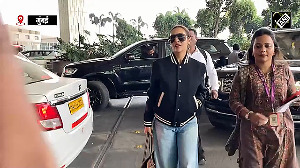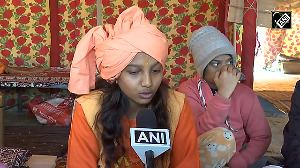ISO, which was expected to take this decision shortly, had given participating countries two months' to appeal against its February decision to make OOXML an international standard. In response, four national standards body members - Brazil, India, South Africa and Venezuela - did so.
".the appeals are currently being considered by the ISO secretary-general and the IEC general secretary who, within a period of 30 days (to the end of June), and following whatever consultations they judge appropriate, are required to submit the appeals, with their comments, to the ISO Technical Management Board and the IEC Standardisation Management Board," an ISO statement reads.
The two management boards will then decide whether the appeals should be further processed or not. If they decide in favour of proceeding, the chairmen of the two boards are required to establish a conciliation panel, which will attempt to resolve the appeals. The process could take several months.
Late last month, the Indian Institute of Technology (IIT), Bombay, had taken a strong objection to the fact that despite a 'no' to OOXML by a majority of the Bureau of Indian Standards (BIS) members in September 2007, the software giant "continued to make representations to the top Indian leadership (read Ministry of Consumer Affairs), pressurising them to change the Indian vote". Deepak B Phatak of
IIT Bombay had sent an open letter in this regard to all BIS members. The BIS represented India as a participating member of ISO and was responsible for examining OOXML and deciding on a 'no' regarding India's position at the ISO.
Microsoft had declined to comment on the specific issue of withdrawing the complaint, but a spokesperson had said: "We would just like to reiterate our respect for both IIT-Bombay as an esteemed echelon of learning, and Phatak as one of its most respected educators. The issue raised with the government about certain members of the BIS committee having a possible bias was an issue we were genuinely concerned about and had fair grounds to believe. It was not targeted at a specific organisation or individual."
The OOXML format is backed by Apple, Novell, and closer home by Wipro, Infosys, TCS, and Nasscom. The other format - the Open Document Format (ODF) - is supported by the likes of IBM, Sun Microsystems, Red Hat, Google, and in India, by the Department of Information Technology (DIT), National Informatics Centre (NIC), CDAC, IIT-Bombay and IIM-Ahmedabad.
The 'no' from India could make it difficult for Microsoft to get government business since governments worldwide, including India, prefer standards and are wary of holding digital data in proprietary formats, which could make them hostage to a software vendor. States such as Delhi, Kerala and others from the North-East are heavy adopters of ODF file formats which are open and free (excluding maintenance and support).







 © 2025 Rediff.com -
© 2025 Rediff.com -